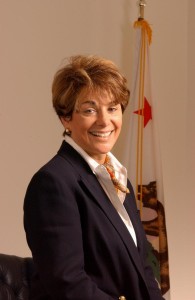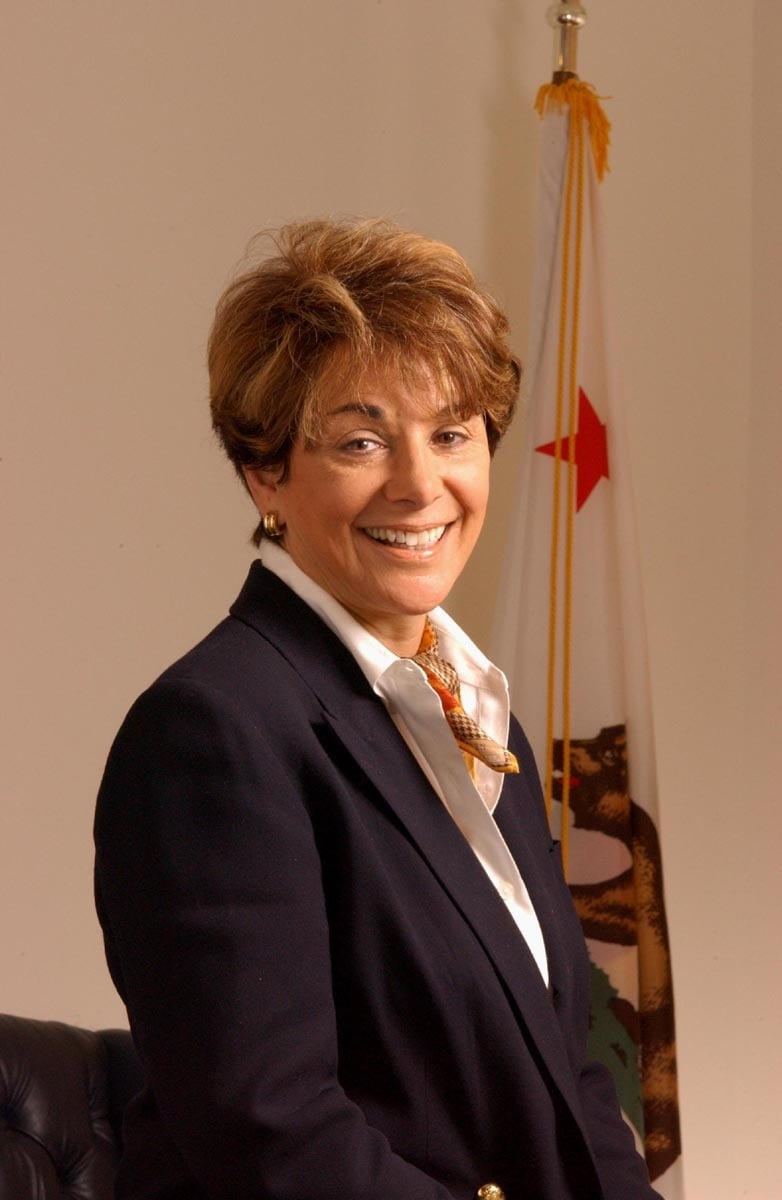
Congresswoman Anna Eshoo (D) is the representative for California’s 14th Congressional District. Since 1993, Eshoo has been serving the district, which covered parts of Santa Clara, Santa Cruz and San Mateo counties, including the cities of Palo Alto, Menlo Park and Redwood City until the 2012 redistricting. She is currently running for election in the redrawn 18th Congressional District, which now includes Palo Alto.
Eshoo, who is the ranking member of the House Subcommittee on Communications and Technology, spoke at the PoliSci 51K: Election 2012 seminar series on Oct. 30 and later sat down to speak with The Daily about working in a divided Congress, the upcoming elections and issues concerning college students and Silicon Valley.
The Stanford Daily (TSD): What do you feel are the top three political issues for American voters today, and what are the top three issues for college students today?
Anna Eshoo (AE): Generally, in terms of the electorate, they have a laser-beam focus on the national economy – how more jobs can be created, certainly the debt and the deficit and also how a dysfunctional Congress can start working again for the benefit of the country. The electorate [is] very troubled that Congress has not functioned, in their view, for their benefit. So those are the top issues.
For college students, I feel that there is a reflection of those main concerns. They may express them in a different way, but certainly, the affordability of a college education, our national economy, the opportunities for their future and also the fiscal situation in the country.
TSD: What are the most pressing legislative issues for your district, and Silicon Valley in particular?
AE: The top issues that the very small startup companies talk to me about, right up to the largest one and everyone in between, are immigration, education [and] patent reform… Immigration [reform] is embraced across the board among my constituents, especially in the private sector. They see that there is a demand for scientists and engineers and that there need to be reforms to our immigration systems in the visas and all that applies to [them].
TSD: What particular immigration reform policies would you yourself advocate?
AE: I have always been for comprehensive immigration reform, number one, because the system is broken across the spectrum…Having said that, I think that we have some opportunities for pieces of legislation to repair the system as well. The whole area of those who come to the United States for their higher education…our immigration system does not allow them to stay. I’ve always taken the view that we should staple that green card to their degree because our country [and] our economy would benefit enormously. Instead, these graduates are going to their countries of origin and competing hard against us. That doesn’t make sense to me.
TSD: Do you feel that Congress is equipped or that its members are well enough informed to create a regulatory framework that will keep up with Silicon Valley’s innovation?
AE: Well, first of all, government does not keep up with the rapidity of change. It always lags behind. Having said that, I do think at the time I first entered the Congress…there was hardly anybody who knew the issues or understood them. But the advocacy from Silicon Valley, and the dramatic changes Silicon Valley has brought about not only in our country but also in the world, speaks for itself. I would describe it in the following way: There is a broader appreciation of what [Silicon Valley] represents, but I don’t believe that there is a deep understanding across the entirety of the Congress about the issues. Many of them are extraordinarily complex, but I do think that it has changed. It has changed in part because members are using the technology themselves, certainly their families are, and they see the changes there.
TSD: In your opinion, and from what you have observed this election, how much have political donations impacted this election relative to the last presidential election?
AE: The whole issue of money in campaigns is a total turn-off to the electorate because it chips away their confidence in representation. What the Supreme Court unleashed with the Citizens United case is unspeakably undemocratic. I think it is one of the most disastrous decisions any Supreme Court in the history of the country has rendered, because it has changed everything. You have anonymity in terms of donors, in unspecified amounts. That is not democratic, and I think most people find that sickening.
TSD: This Congress has passed the fewest laws of any Congress in 65 years. What do you feel are the causes of this lack of productivity?
AE: When you have a party that says, through its leadership, on the heels of the inauguration, that its top goal is that the president does not have a second term, that’s quite stunning. And they kept that promise. When you decide that you’re going to say ‘No’ before you’ve ever had a conversation, the American people are going to lose. But what happened with this is that there is a pox on both houses, on both parties. What happened was unprecedented.
TSD: How will you gain back the trust of your constituents if you are re-elected?
AE: I’ve always produced results and victories for my constituents, regardless of whether I’m serving in the minority….I’m always on the hunt for, or always begin with, a Republican lead on my legislation and I keep building on that. And sometimes it doesn’t work, but that’s not because of the lack of my trying….Together with Congressman Greg Walden (R-Ore.)…we wrote legislation [reallocating spectrum allowances] and successfully passed it. It may not be an issue that is written about above the fold in major newspapers, but it is a significant accomplishment. That took almost 15months to accomplish, and I was bound and determined that the legislation would not fall apart because of a lack of bipartisanship. It does take determination.
If you start out with your eye on the prize, and…you’ll do everything possible to keep things together and on track, it can be done. Is it difficult? Of course it is. But the framers did not design our system to be an easy one, and I always keep that at the back of my mind. There are days when I think that things are falling apart…but you have to stay at the table and keep it together.
– Aaron Sekhri
